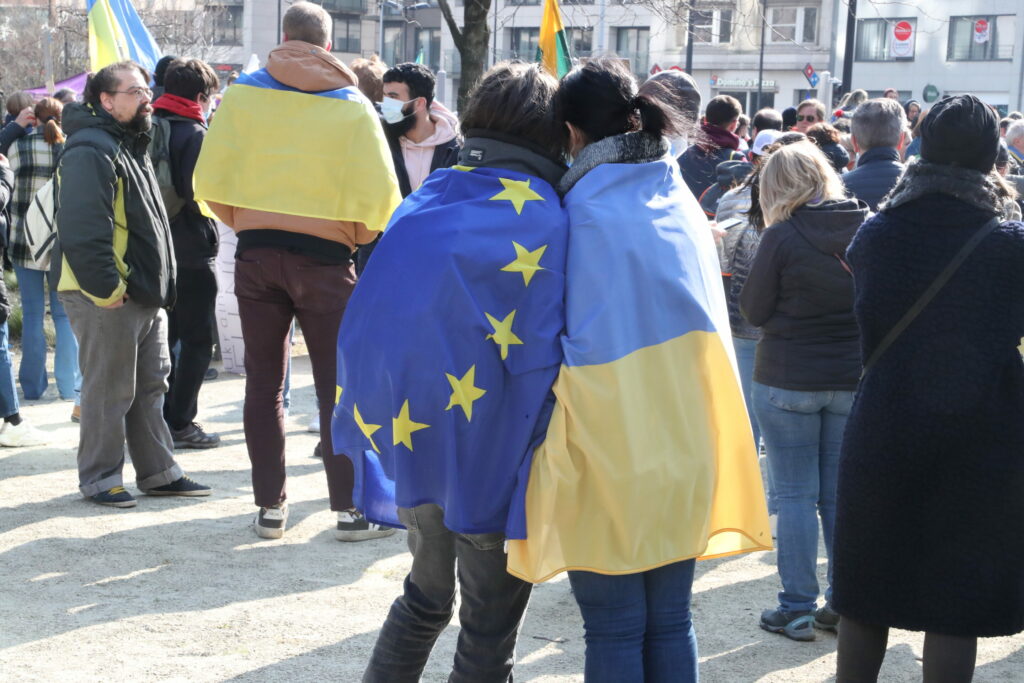European Union Member States have decided to extend the temporary protection for Ukrainian refugees by one year, until 4 March 2026. While refugee organisations consider this good news, they argue for a more sustainable status as no solution to the conflict is in sight.
Shortly after the Russian invasion in February 2022, the 27 Member States unanimously activated the directive on temporary protection. This ensured that Ukrainian refugees did not have to go through the traditional asylum procedure and were immediately granted residence rights and access to housing, social assistance, healthcare, the labour market and education.
"As long as bombs are falling in Ukraine, the situation there is not safe. Ministers today showed renewed solidarity and decided to continue offering protection to Ukrainians in the EU," State Secretary for Asylum and Migration Nicole de Moor said on behalf of the Belgian EU Presidency.
This special form of protection for Ukrainian refugees has been extended several times. The current regime was due to expire on 4 March 2025, but that deadline has now been extended by a year.
Permanent status?
Currently, 4.2 million Ukrainians benefit from temporary protection in the EU. A total of 83,226 temporary protection documents have been granted to Ukrainians in Belgium. Of these, 60,996 still reside in Belgium today. Remarkably, 50 people are still applying for temporary protection every day.
"It is gradually becoming clear that this will be a matter of years," said Tine Claus, director at Vluchtelingenwerk Vlaanderen, on Flemish radio on Friday. "We therefore advocate a permanent status at the European level in terms of right of residence."
In this way, they can look beyond the one-year extension and combine it with a sustainable integration policy. "These people are realising more and more that they will stay here longer than they had initially hoped."
According to Claus, three major elements are key to ensuring the integration of Ukrainian refugees: housing, work and education. When it comes to housing, she pointed out that many reception initiatives for people from Ukraine are just winding down these days.
Related News
- European Commission proposes extending protection for Ukrainians to 2026
- 'Perpetuating the problem': How politicians use migration to deceive voters
- Two years into the war, Belgian support for Ukrainian aid wavers
"We advocate organising emergency villages in every central city – not only for people from Ukraine but also from other war zones. Those emergency villages are really the essence to ensure that there are no problems finding housing," she said. "The private rental market is already very saturated."
Next, the barriers need to be removed for Ukrainians to (find) work in Belgium. Not only is it important to guide them towards work, but "they should also be aware of their rights as workers," Claus stressed. "And those rights should be respected."
Finally, she made a plea for more resources for so-called OKAN education (reception classes for non-native newcomers), with language classes and psychosocial support. "The Ukrainian Government has pushed very hard for distance education. Many Ukrainian young people are currently still receiving education via their computers. But even in this area, there is a realisation that they will not be able to return anytime soon."

